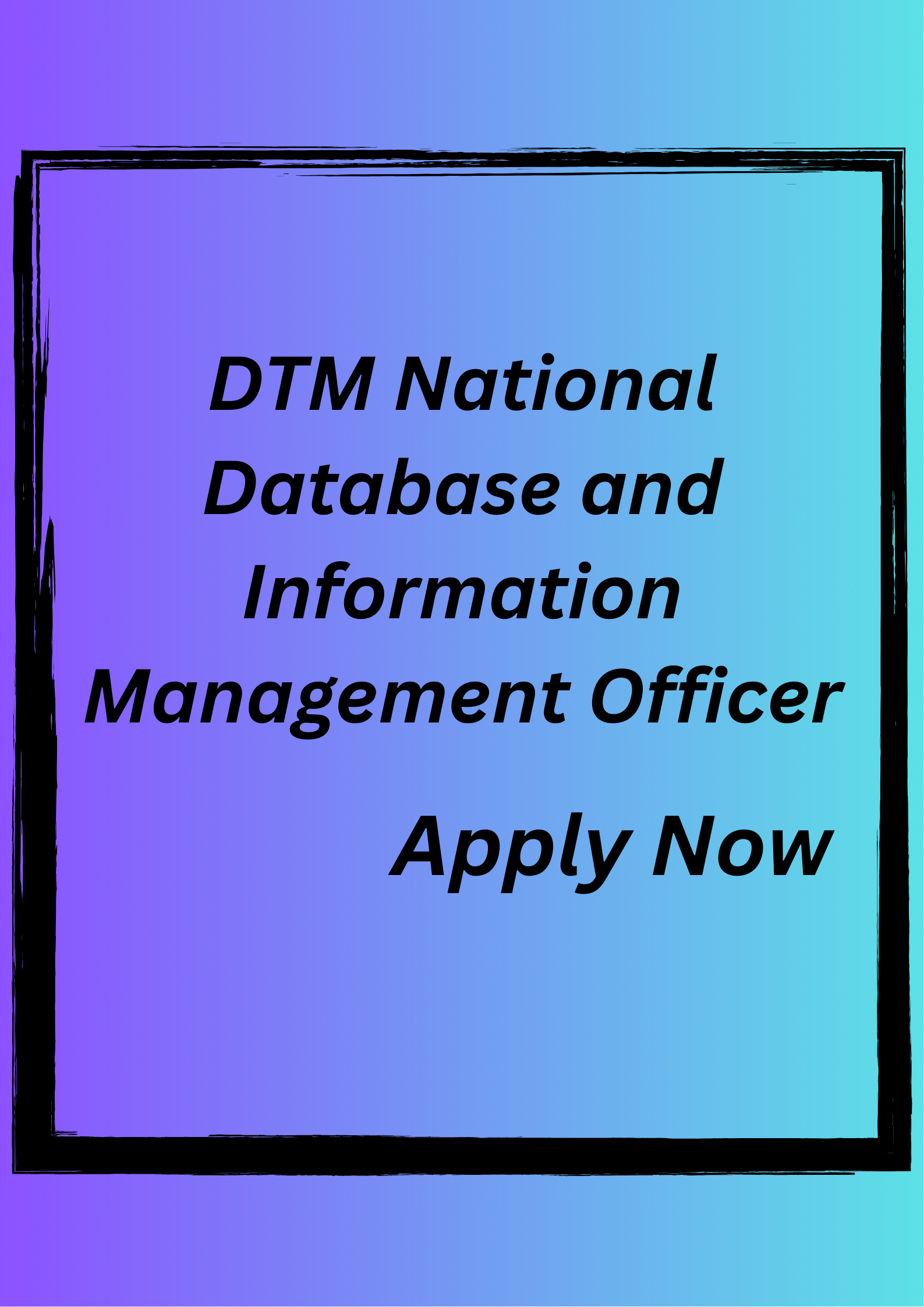DTM National Database and Information Management Officer
In a world where data drives decisions, the role of a National Database and Information Management Officer is more crucial than ever. These professionals are at the forefront of managing vital information that shapes policies and programs across nations. From ensuring accurate data collection to facilitating effective communication, their contributions are essential for informed decision-making.
Imagine having access to reliable data at your fingertips. This isn’t just a dream; it’s part of the daily work for these officers who navigate complex databases like skilled navigators through uncharted waters. They play an integral role in various sectors, ranging from health care to emergency response.
As we delve deeper into what makes this position so important, you’ll see how pivotal it is in today’s fast-paced environment where every bit of information counts. Get ready to explore the fascinating world of database management and understand why these officers are indispensable assets in our society!
DTM
DTM, or Displacement Tracking Matrix, is a vital tool used for monitoring the movement of people affected by crises. It provides critical insights into displacement patterns and helps organizations respond effectively to emergencies.
This matrix collects data on various factors such as location, needs, and vulnerability. By analyzing this information, humanitarian agencies can tailor their interventions to meet the specific requirements of displaced populations.
The DTM operates in real time, which allows it to adapt quickly to changing situations. This responsiveness ensures that resources are allocated efficiently where they’re needed most.
Moreover, DTM fosters collaboration among different stakeholders. Governments, NGOs, and international bodies often rely on its findings for coordinated efforts in crisis management. Through shared data and analysis, these entities can work together more effectively to support affected communities during challenging times.
National
The concept of “National” encompasses a broad spectrum of ideas and responsibilities. It often refers to the identity, culture, and governance that bind people within a country.
In an age where globalization is prevalent, the notion of national significance remains crucial. Countries strive to maintain their unique heritage while engaging with global perspectives. This balance shapes policies and influences social dynamics.
At the heart of national development lies effective management systems. These systems are vital for data collection, analysis, and dissemination. They help ensure informed decisions that foster growth and stability.
A strong sense of nationalism can also inspire community engagement. Citizens take pride in their achievements while working together towards common goals. This unity helps build resilience against challenges faced by nations today.
Understanding national priorities can lead to improved strategies for resource allocation, education, healthcare, and infrastructure improvements across various sectors.
Database
Databases are the backbone of modern information management. They store vast amounts of data in a structured way, making it easy to access and manipulate.
Organizing information efficiently is crucial. A well-designed database allows for quick retrieval of necessary details while maintaining data integrity. This means that users can trust the accuracy of what they find.
There are various types of databases, including relational and NoSQL options. Each has its strengths, catering to different needs depending on the nature of the data involved. For instance, relational databases excel at handling complex queries with multiple relationships.
Moreover, as organizations grow, so does their need for scalable solutions. Cloud-based databases have emerged as a flexible option that adapts to increasing demands without compromising performance or security.
The role of a Database Management Officer becomes essential here. They ensure that systems run smoothly and securely while optimizing performance across all platforms.
information
Information is the backbone of decision-making. It shapes our understanding and guides our actions. In today’s digital age, it flows in every direction at lightning speed.
Access to accurate information can empower individuals and organizations alike. It fosters transparency and builds trust within communities. However, not all information is created equal; discerning fact from fiction is more critical than ever.
With vast amounts of data available, it’s essential to manage this flow effectively. Quality over quantity matters when curating resources for specific needs or objectives.
In this pursuit, clarity becomes vital. Clear communication ensures that crucial insights are easily understood by everyone involved, regardless of their expertise level.
Moreover, leveraging technology can enhance how we handle information. Advanced tools help streamline processes while ensuring data integrity remains intact throughout its lifecycle.
Management officer
The role of a Management Officer is pivotal in any organization, especially when it comes to handling data and information. This position requires a unique blend of leadership skills and technical expertise. A Management Officer must ensure that the database operates smoothly while also overseeing data integrity.
Effective communication is essential for success in this role. The officer interacts with various departments, ensuring everyone understands the importance of accurate data collection and reporting. Training sessions are often part of their responsibilities as well, helping team members navigate systems efficiently.
Moreover, staying updated on the latest technologies and best practices is crucial. As trends evolve, so do methodologies for managing databases effectively. Adapting to these changes can significantly enhance organizational performance.
The work done by a Management Officer impacts not just internal processes but also external relations with stakeholders who rely on reliable information. It’s an exciting field filled with challenges that demand both strategic thinking and keen attention to detail.
